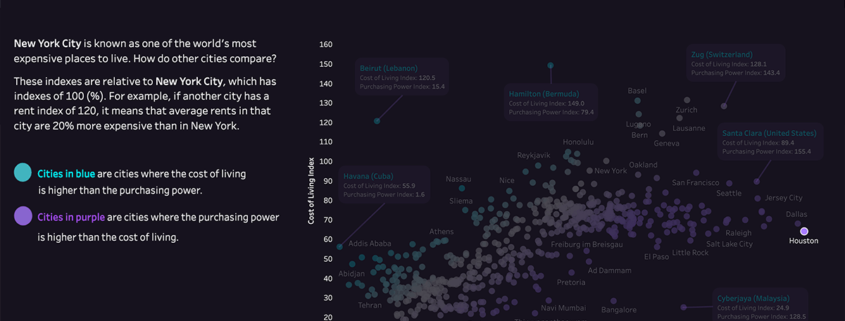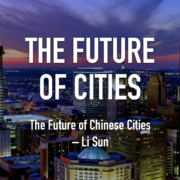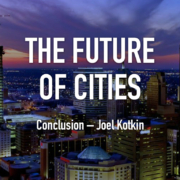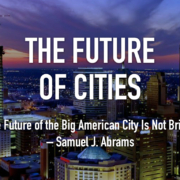Houston 1st in Standard of Living Confirmed, 2nd in Fortune 500 HQs
Continuing to work through the summer backlog of smaller items…
- Visual Capitalist: Unzoned Houston has the highest purchasing power at the lowest cost-of-living in the world… aka the highest standard of living in the world. More cities should use these indexes as their north star metrics of progress.
- Houston is still affordable when factoring out distorted data:
“Demographer Wendell Cox’s recent estimates of U.S. housing affordability found unaffordable housing in Dallas, Houston, and other Texas cities that have historically been quite affordable. In a post about housing issues, I noted that Cox’s home price data were based on real estate transactions while the Census Bureau numbers are based on a cross-section of all homes in a region.
Before the pandemic, median real estate transaction prices were only 2 or 3 percent higher than Census Bureau values, indicating that people buying homes represented a good cross-section of America. In 2021, median real estate sale prices were at least 20 percent higher than Census Bureau values. As the recent real estate boom is driven by people who have discovered they can work remotely, which means people of above-average incomes, price-to-income ratios based on real estate transactions overestimate the true value-to-income ratios.
The 2022 data from the Census Bureau confirm this. The data show that the value-to-income ratio was 3.9 for the city of Houston and 3.2 for the Houston urban area. These are a lot lower than the 4.7 in Cox’s paper.”
- ABC News: What if public transit was like Uber? A small city ended its bus service to find out. Hat tip to John.
- Fortune: The big city winners and losers of the Fortune 500: Why Houston, Atlanta and Dallas are (almost) beating New York and Chicago (no-paywall link)
“Houston has the title of second most popular headquarters city for Fortune 500 firms… with 22 of them headquartered in the city…
What makes Texas, or Houston for that matter, so appealing for corporations? Mostly the low cost of living and lack of taxes on businesses. Even Exxon has tightened its belt in the inflationary age, though, shedding its “God Pod” and consolidating its upper management’s formerly exclusive luxury suite into its preexisting Houston campus.”
- Chronicle: Houston poverty rates the highest among major U.S. metros, new Census data shows. Flip the perspective on this story: So restrict housing -> drive up costs and drive out opportunity-seeking low-income households -> median incomes go up = city wins??? 🤔😠 This is exactly what so many cities do, playing a game of hot potato with low-income households, but not Houston, which should be proud of attracting opportunity seekers rather than embarrassed.
- Do Higher Speeds = Higher Incomes?
“faster cities are faster because they have more roads and are lower in density (which they describe as have a “larger land area”); and that those roads produce benefits by allowing faster top speeds more than by reducing congestion…The authors conclude that cities that want to increase speeds (and, by stated implication, worker incomes) should build more roads. While it admits that won’t be possible in Bangladesh, it should be possible in most cities and countries. Even if, as the anti-road people argue, building more roads simply leads to more driving, building roads that are faster leads to higher overall speeds which should produce enormous economic benefits.”
This piece first appeared at Houston Strategies.
Tory Gattis is a Founding Senior Fellow with the Urban Reform Institute and co-authored the original study with noted urbanist Joel Kotkin and others, creating a city philosophy around upward social mobility for all citizens as an alternative to the popular smart growth, new urbanism, and creative class movements. He is also an editor of the Houston Strategies blog.
Photo credit: Visual Capitalist



 Terry Hammonds, CC 2.0 License
Terry Hammonds, CC 2.0 License




